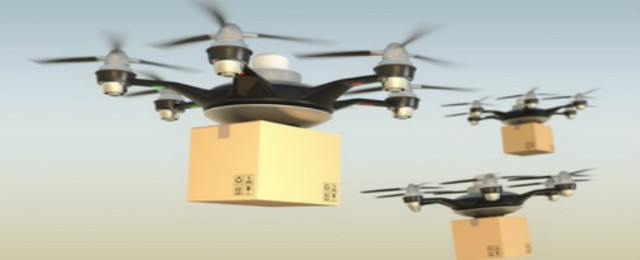FAA approves commercial use of drones
by June 21, 2016 2:46 pm 245 views

It’s been a long-time coming, but the Federal Aviation Administration released the basic guidelines that will regulate the commercial use of drones on Tuesday (June 21). Drone flights could begin as early as late-August, which is 60 days after the rules are recorded in the Federal Register.
Walmart, Amazon and other retailers have been testing the use of drones within their organizations, but final-mile delivery for online orders has been on hold for the last year or so as the FAA studied the impact flying drones had in commercial airspace.
The new rules placed limitations on the use of drones which could make it difficult for wide-scale use in final mile delivery for companies like Walmart, but the retailer continues to test drone usage in its warehouses and other operational applications.
The FAA said flying drones must weigh no more than 55 pounds and they must be operated only during daylight hours and within the sight of an operator. Drones may fly no higher than 400 feet.
Drone pilots must be at least 16 years old and have a remote pilot certificate with a small UAS rating, or be directly supervised by someone with such a certificate. The TSA will conduct a security background check on all remote pilot applications. New guidance will also be issued to local and state governments on drone privacy issues.
These new regulations work to harness new innovations safely, to spur job growth, advance critical scientific research and save lives, according to the news release by the Department of Transportation.
“We are part of a new era in aviation, and the potential for unmanned aircraft will make it safer and easier to do certain jobs, gather information, and deploy disaster relief,” said U.S. Transportation Secretary Anthony Foxx. “We look forward to working with the aviation community to support innovation, while maintaining our standards as the safest and most complex airspace in the world.”
Foxx said the rule provisions are designed to minimize risks to other aircraft and people and property on the ground. The FAA is offering a process to waive some restrictions if an operator proves the proposed flight will be conducted safely under a waiver.
The FAA said it will make an online portal available to apply for these waivers in the months ahead.
“With this new rule, we are taking a careful and deliberate approach that balances the need to deploy this new technology with the FAA’s mission to protect public safety,” said FAA Administrator Michael Huerta. “But this is just our first step. We’re already working on additional rules that will expand the range of operations.”
